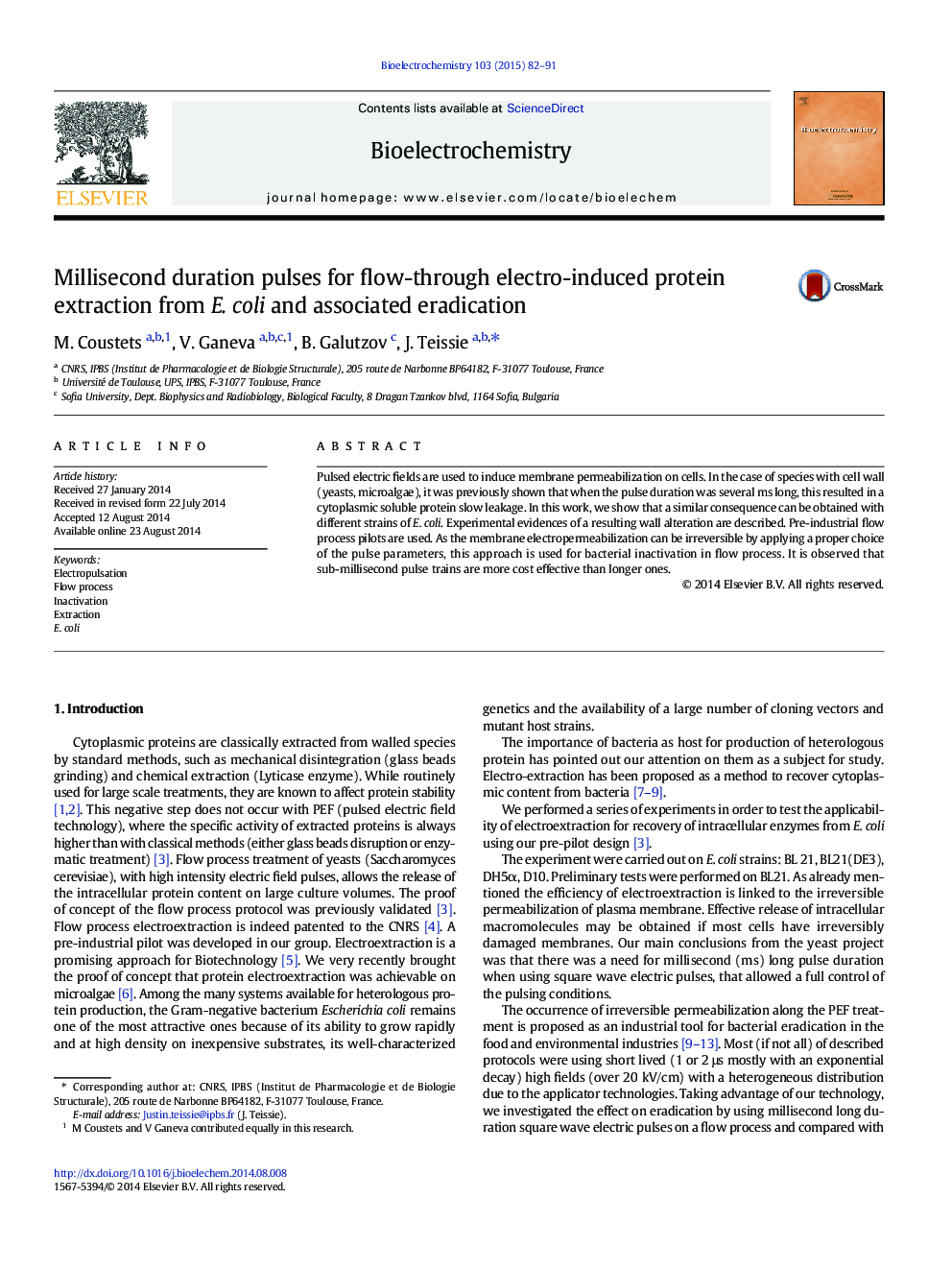| Article ID | Journal | Published Year | Pages | File Type |
|---|---|---|---|---|
| 1267905 | Bioelectrochemistry | 2015 | 10 Pages |
•Plasma membrane alteration detected by staining depends on electrical conditions.•Proteins with a mass up to more than 200 kDa are released by electroextraction.•The yield of electroextracted E. coli's proteins strongly depends on the growth phase.•Cells incubation with low concentration of lysozyme enhances the protein extraction.
Pulsed electric fields are used to induce membrane permeabilization on cells. In the case of species with cell wall (yeasts, microalgae), it was previously shown that when the pulse duration was several ms long, this resulted in a cytoplasmic soluble protein slow leakage. In this work, we show that a similar consequence can be obtained with different strains of E. coli. Experimental evidences of a resulting wall alteration are described. Pre-industrial flow process pilots are used. As the membrane electropermeabilization can be irreversible by applying a proper choice of the pulse parameters, this approach is used for bacterial inactivation in flow process. It is observed that sub-millisecond pulse trains are more cost effective than longer ones.
Graphical abstractFigure optionsDownload full-size imageDownload as PowerPoint slide
